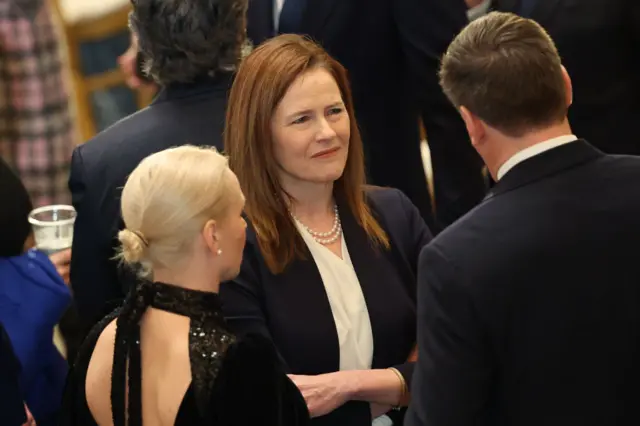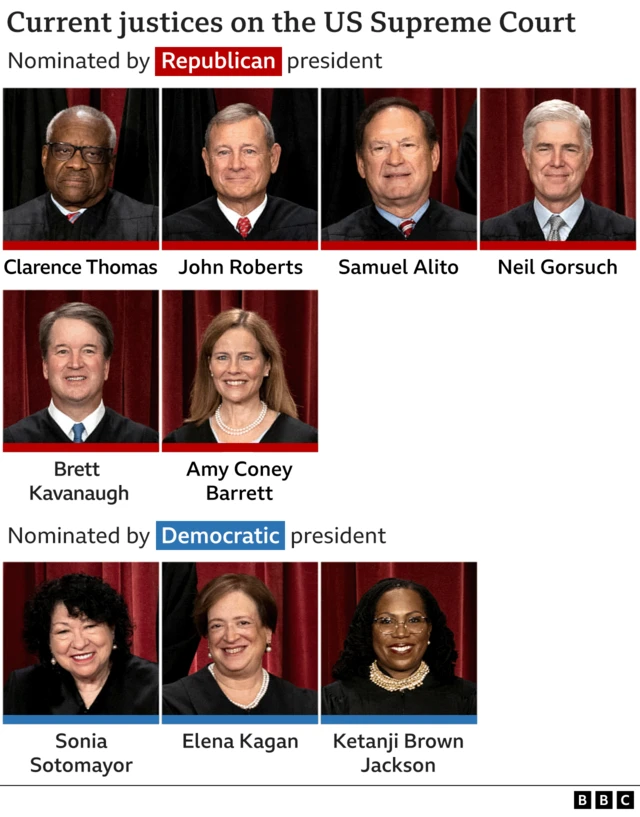A snapshot of opinions from the justicespublished at 15:43 BST 27 June
 Image source, Getty Images
Image source, Getty ImagesJustice Amy Coney Barrett wrote the majority opinion
Justice Barrett (who delievered the opinion of the majority):
"Federal courts do not exercise general oversight of the Executive Branch; they resolve cases and controversies consistent with the authority Congress has given them. When a court concludes that the Executive Branch has acted unlawfully, the answer is not for the court to exceed its power, too."
Justice Thomas’ concurring opinion:
"Lower courts should carefully heed this Court’s guidance and cabin their grants of injunctive relief in light of historical equitable limits. If they cannot do so, this Court will continue to be “dutybound” to intervene."
Justice Sotomayor (who wrote in dissent):
"The Court’s decision is nothing less than an open invitation for the Government to bypass the Constitution.
"The rule of law is not a given in this Nation, nor any other. It is a precept of our democracy that will endure only if those brave enough in every branch fight for its survival. Today, the Court abdicates its vital role in that effort. With the stroke of a pen, the President has made a “solemn mockery” of our Constitution.
"The gamesmanship in this request is apparent and the Government makes no attempt to hide it. Yet, shamefully, this Court plays along."




